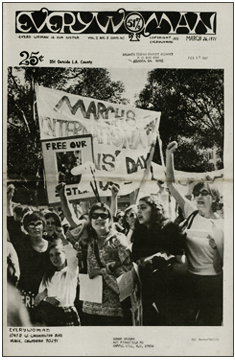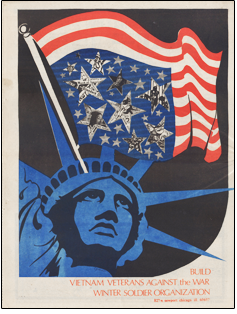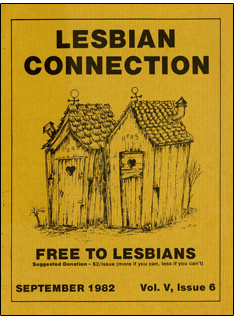 Digital information industry veteran Jeff Moyer last month launched Reveal Digital, a company that aims to use a lean, efficient funding model to digitize special collections and then make those collections open access.
Digital information industry veteran Jeff Moyer last month launched Reveal Digital, a company that aims to use a lean, efficient funding model to digitize special collections and then make those collections open access.
Moyer has had leadership roles at Gale, ProQuest, and the National Archive Publishing Company, and says that his experience with the Early English Books Online Text Creation Partnership helped inspire him to found Reveal, which will treat digitization “as a service to libraries rather than a more traditional publishing or product approach,” he said.
The company’s business model, which Reveal describes as “cost recovery=open access,” works by first assessing the total cost of each project, including the cost of conversion, copyright clearance, royalties, sales and marketing, hosting and ongoing development, and administrative costs. Then, a purchase price is determined by estimating the number of libraries that will buy the collection in its first four years.
To help ensure the accuracy of these sales estimates, each project will begin with a six-month open-enrollment period, during which libraries can commit to purchase the collection via non-binding agreements. If open-enrollment commitments are higher than anticipated, the price of the collection will be lowered accordingly. LYRASIS will act as the primary sales channel for these collections (though LYRASIS membership will not be required for purchases or open-enrollment commitments).
Two years after the costs of a project are recovered, the resulting collection will become open access. According to the company, Reveal is currently in discussions with HathiTrust and the Internet Archive about providing long-term access to the content once this open access period is reached.
Alternative press
“I think it’s definitely a model worth considering both from a source (provider of materials) perspective and a subject librarian perspective,” Laura Micham, the Merle Hoffman Director of Duke University’s Sallie Bingham Center for Women’s History and Culture, wrote in an email. “It’s a great relief that  someone has come up with a way to move beyond the super-expensive commercial digital project model towards an affordable open source framework. This model also potentially creates a way for libraries with high research value collections but perhaps less infrastructure to digitize them and/or clear associated rights to connect their material with a broader research community. Libraries that can bear these burdens but are interested in aggregating their material with related material from other institutions pay less for the resulting product.”
someone has come up with a way to move beyond the super-expensive commercial digital project model towards an affordable open source framework. This model also potentially creates a way for libraries with high research value collections but perhaps less infrastructure to digitize them and/or clear associated rights to connect their material with a broader research community. Libraries that can bear these burdens but are interested in aggregating their material with related material from other institutions pay less for the resulting product.”
As director of the women’s history collection at Duke’s Rubenstein Rare Book & Manuscript Library, Micham worked with Reveal on the company’s initial project, Independent Voices, a collection of alternative press newspapers, magazines, and journals from the late 1960s and 1970s. The collection includes LGBT titles, feminist publications, underground campus newspapers, anarchist and ultra-conservative periodicals, and Native American and African American titles. Duke contributed a collection of mid-20th century feminist publications, including early Women’s Liberation periodicals.
 “Alternative and progressive print culture of the kind that will be brought together in Independent Voices is in great demand by students and scholars in many fields such as history and cultural studies,” Micham told LJ. “It will exciting for researchers to be able to search across what will be an enormous body of rare and ephemeral periodical literature emerging from the major social justice movements of the 20th century.”
“Alternative and progressive print culture of the kind that will be brought together in Independent Voices is in great demand by students and scholars in many fields such as history and cultural studies,” Micham told LJ. “It will exciting for researchers to be able to search across what will be an enormous body of rare and ephemeral periodical literature emerging from the major social justice movements of the 20th century.”
Jeffrey Garrett, Associate University Librarian for Special Libraries and Director, Special Collections and Archives for Northwestern University Library, said that he continues to be “very comfortable creating and benefiting” from joint projects with companies such as Gale, ProQuest, and NewsBank, but he also expressed enthusiasm for Reveal, noting that the company has the potential to foster better collaboration between libraries with related special collections.
“Reveal Digital has come up with a model that has identified a very neuralgic point in collaboration between libraries,” he said. “We meet our colleagues all the time, but we are not strong at developing collaborative projects. What Jeff Moyer has realized is that … a digital project that brings together the resources of two, five, ten institutions, is performing a major service to each of those institutions.”
While the California Digital Library (CDL) has not yet contributed materials to Independent Voices, it was one of the earliest to commit to purchase the collection. CDL Director of Collections Ivy Anderson explained that, “bringing together materials that support a particular area of study, particularly ones that are obscure and might be difficult to locate independently, is naturally an aid to researchers; that is the very essence of collection development.”
Collaborative content
Libraries that pay for a collection will receive immediate access, including the option to load the collection locally on their own websites, as well as title-level MARC records and COUNTER-compliant usage reports. Libraries that contribute content will receive free copies of all digital files and metadata  sourced from their library, as well as permission from rights-holders to display in-copyright material on their websites. Reveal will reimburse contributing libraries for all costs related to preparing materials for shipment, as well as shipping and re-shelving.
sourced from their library, as well as permission from rights-holders to display in-copyright material on their websites. Reveal will reimburse contributing libraries for all costs related to preparing materials for shipment, as well as shipping and re-shelving.
Micham said that providing Reveal with Duke’s collection of mid-20th century feminist publications posed its share of challenges, but that the work was worth it.
“We prepared large batches of material, sent them to Reveal Digital for scanning, received image and metadata samples for review, and sent more when a batch of originals returned,” she said. “The work required a good bit of time and staging area but we feel that this effort was worthwhile since Reveal Digital did the significant work of clearing rights and now that the collection will be much more widely available.”
Garrett, who also helped Northwestern contribute materials to the Independent Voices collection, said that Reveal’s management and oversight had helped the project progress in an efficient manner. He later added that the company’s model could prove particularly helpful for curating collections that conventional digital publishers might overlook.
 “This is content that, by and large, the big digital publishers are not as interested in,” he said. “They are looking for very large sets of monographs or journals. Dealing with special collections materials, this is not a marketplace where entrepreneurs are going to make a lot of money. But at the same time it is content that, accumulated, has the potential to revolutionize the use of special collections.”
“This is content that, by and large, the big digital publishers are not as interested in,” he said. “They are looking for very large sets of monographs or journals. Dealing with special collections materials, this is not a marketplace where entrepreneurs are going to make a lot of money. But at the same time it is content that, accumulated, has the potential to revolutionize the use of special collections.”
So far, the company is off to a promising start with its first collection. Just a few weeks into its six month open-enrollment period, 24 libraries have committed to purchase Independent Voices, which would net the collection 20 percent of its total cost recovery goal. This collection offers tiered pricing based on institution size and type, ranging from $1,283 annually for four years or $5,130 lump sum for smaller public libraries and libraries serving undergraduate programs and 2 year colleges to $5,125 annually for four years or a $20,500 lump sum enrollment for members of the Association of Research Libraries and large public systems.


